Web3: ¿principio del fin de la web2? [Esp/Ing]
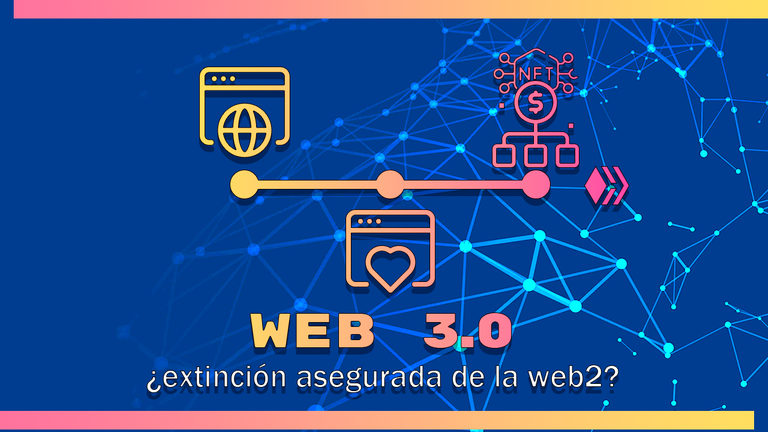
Mucho se habla de la llegada de la web 3 y de cómo esta traerá equidad, seguridad y descentralización a la Internet, pero ¿realmente es esto así? realmente ¿la aparición de una nueva red descentralizada condena a la extinción a la web 2?
En su momento la Web 2 llegó para darnos a todos como usuarios la oportunidad de interactuar con el contenido publicado en la red, que hasta su día no era más que contenido plano, o como solemos llamarle: estático, para ponerles en contexto: ¿comentarios, likes, botón de compartir? pues no!, eso no existía en la web 1, por lo que no se contaba con el “control de calidad” que hoy en día las personas suelen darle a la información por medio de comentarios y calificaciones, sin necesidad de ser hackers, programadores, usuarios con permisos especiales o agente de S.H.I.E.L.D.
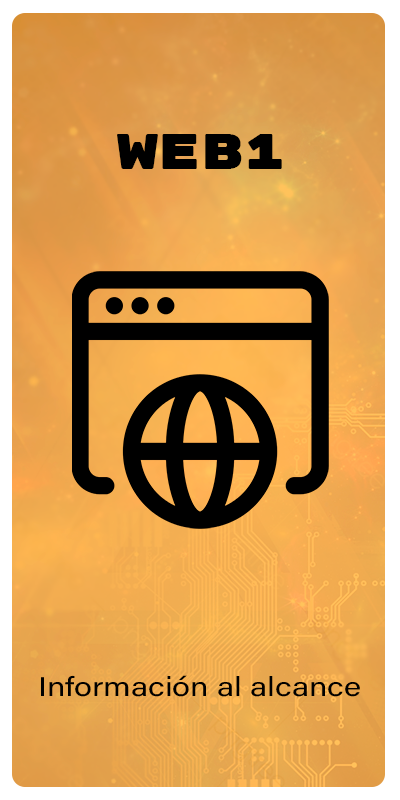
Entonces tú pensarás: ¿me estás queriendo decir que la web 2.0 aniquiló a la web 1 y por tanto la web 3 está destinada a hacer lo mismo con la web 2?
Ehhh bueno, la verdad no, de hecho, aún en estos días siguen existiendo webs estáticas, de hecho, se han generado nuevos entornos de trabajo para crearlos haciendo uso de tecnología moderna como Jekyll que es uno de los generadores de web estáticas más populares, en conjunto con HUGO o Gridsome. No te preocupes si no conoces alguno de estos, en realidad no son más que framework de desarrollo, o sea, son para programadores, no son sitios o plataformas de uso general (para todo público).
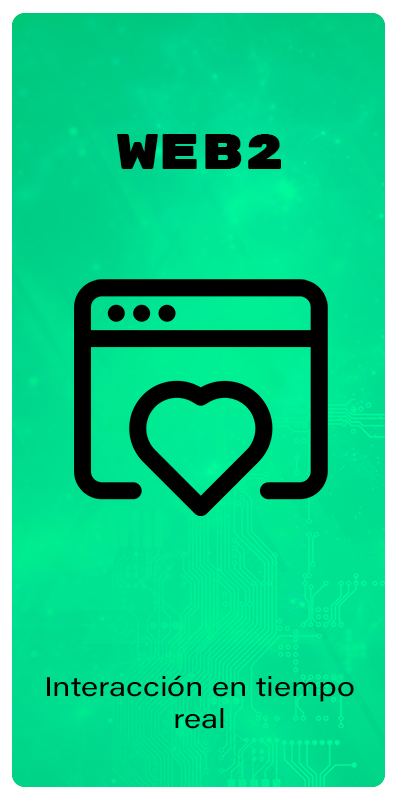
Lo que quiero darte a entender con esto es que en la actualidad seguimos diseñando tecnologías y técnicas para generar y optimizar sitios estáticos.
¿La web 2 no sustituye o reemplaza a la web 1?
Pues ¡no! de hecho, coexisten juntas. Si bien es cierto que las páginas dinámicas ocupan una inmensa parte de la web actual también es importante reconocer que existe un mercado aún abierto ocupado por la web 1.
Así como la web 2 llegó para darle dinamismo y protagonismo al usuario final, la web 3 llega con una clara idea: Cambia toda la arquitectura de la web por medio de la descentralización.
¿Pero, con qué se come eso?
Pues, la forma en la cual un sistema tipo Facebook funciona a día de hoy es por medio de un servidor centralizado que almacena toda la información (en realidad es más complejo que eso, pero a grandes rasgos, sirve como referencia). Entonces imagínate, toda la información que llega debe ser almacenada y respaldada, lo que conlleva a un almacenamiento enorme de información, la cual debe ser almacenada de forma física en algún lado y ello convierte a Facebook en amo y señor de la información allí guardada, ehhhh sip, esa foto en la que estás pensando y diciendo que borraste, ahora le pertenece a Facebook.
Entonces la propuesta tras la descentralización de la información es simple, en lugar de tener la información almacenada en un solo lugar ¿por qué no almacenarla en muchos lugares denominados nodos?, pero claro, esta información no estará simplemente guardada allí y distribuida en las máquinas de muchas personas, “¡tranquilización!” La información es guardada en nodos de forma encriptada, de hecho, una de las promesas de la web 3 es que permitirá a los usuarios tener a la mano distintos centros de datos en el mundo y podrán elegir quién guarda sus datos y cómo, por lo que no es de libre acceso a cualquiera y cada una de las operaciones de escritura debe ser aprobada por un número definido de nodos siguiendo una serie de requisitos, sino, la operación es desechada.
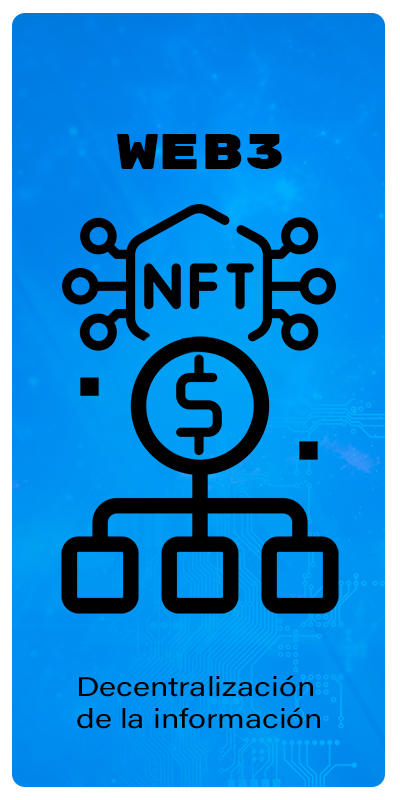
Entonces todo esto le brinda descentralización y seguridad a la red, pero ¿a qué costo? el problema principal a resolver aun por la web 3 es la velocidad de las operaciones, pues, en la web 2 las operaciones de lectura y escrituras son realmente rápidas.
Esta segmentación del mercado de desarrollo web es el que supongo, y quiero recalcar que esta es mi humilde opinión, es lo que ocurrirá con la llegada de la web 3, la cual si bien es cierto, lleva un tiempo entre nosotros y que a pesar de que plataformas como Hive están demostrando que esta tecnología es una realidad que debemos afrontar, aún no se ha establecido con fuerza, aun se encuentra en proceso de ser perfeccionada y por tal motivo aun debe ganar adeptos que crean y apuesten por ella y así encontrar su nicho en este basto mundo que representa la Internet.
No hay duda en que la web 3 es una tecnología que a pesar del tiempo sigue en desarrollo, muchas son las utilidades y muchos son los beneficios que de usarse de forma correctas puede aportar, a pesar de que existen detractores de la misma que sostienen que “la web3 no es más que una entidad centralizada pero con otra etiqueta” (Jack Dorsey, cofundador de Twitter) algo es seguro, ninguna tecnología es perfecta, pero todas vienen a satisfacer una necesidad. ¿Que dices? ¿crees que la web 3 vendrá a quedarse o será solo estará de paseo por nuestras vidas?
### Versión en ingles / English version
There is much talk about the arrival of Web3 and how it will bring equity, security, and decentralization to the Internet, but is this the case? Does the emergence of a new decentralized network condemn Web2 to extinction?
At the time Web2 came to give us all, as users, the opportunity to interact with the content published on the network, which until that day was nothing more than flat content, or as we usually call it: static, to put them in context: comments, likes, share button? well, no! that did not exist on the web1, so it did not have the "quality control" that today people usually give to the information through comments and ratings, without the need to be hackers, programmers, users with special permissions or S.H.I.E.L.D. agent.
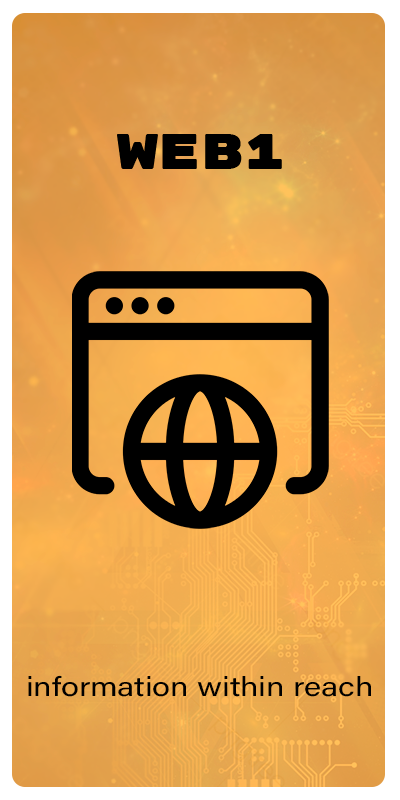
So you will think: are you telling me that web 2.0 annihilated web 1 and therefore web 3 is destined to do the same to web 2.0?
Not really, even in these days there are still static webs, in fact, new working environments have been generated to create them using modern technology such as Jekyll which is one of the most popular static web generators, along with HUGO or Gridsome. Do not worry if you do not know any of these, in fact, they are just development frameworks, that is, they are for programmers, they are not sites or platforms for general use (for all public).
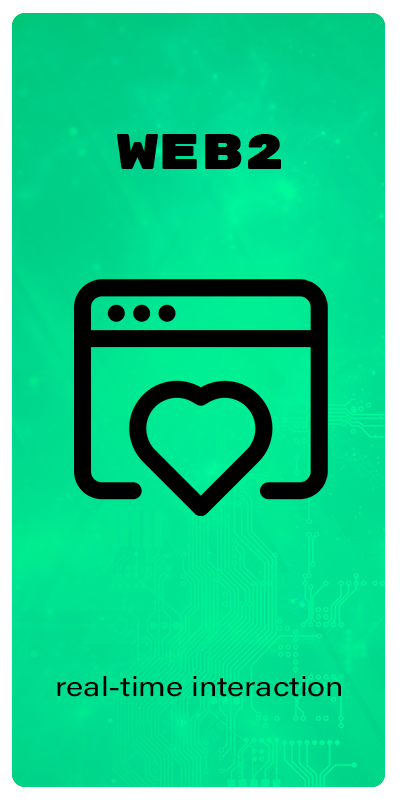
What I mean by this is that even today we are still designing technologies and techniques to generate and optimize static sites.
Does web2 not substitute or replace web1?
They coexist side by side. While it is true that dynamic pages occupy a huge part of today's web, it is also important to recognize that there is still an open market in which the web1 occupies a huge part.
Just as web 2 came to give dynamism and prominence to the end user, web 3 comes with a clear idea: It changes the entire web architecture through decentralization.
Let's clarify
Well, how a Facebook type system works today is through a centralized server that stores all the information (actually it is more complex than that, but roughly speaking, it serves as a reference). then imagine, all information that arrives must be stored and backed up, which leads to huge storage of information that must be stored physically somewhere and that makes Facebook master and lord of the information stored there, ehhhhhh yep, that picture you are thinking about and saying that you deleted now belongs to facebook.
So the proposal behind the decentralization of information is simple instead of having the information stored in one place why not store it in many places called nodes, but this information will not simply be stored there and distributed on many people's machines, "tranquility!" The information is stored in nodes in an encrypted way, in fact, one of the promises of web 3 is that it will allow users to have at hand different data centers in the world and they will be able to choose who stores their data and how, so it is not freely accessible to anyone and each of the write operations must be approved by a defined number of nodes following a series of requirements, otherwise, the operation is discarded.
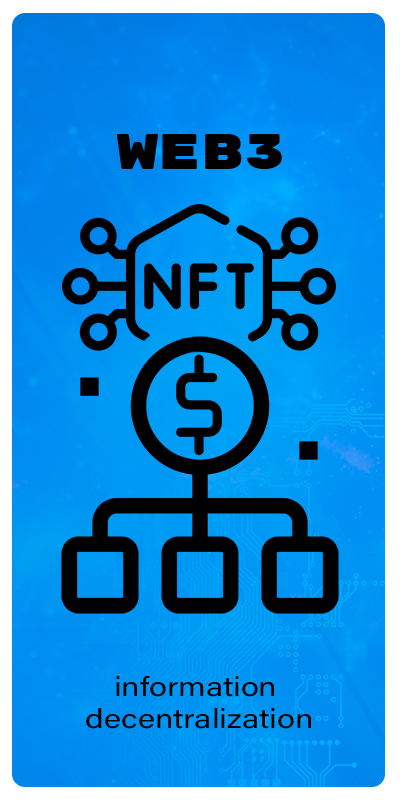
So all this brings decentralization and security to the network, but at what cost? The main problem to be solved even by Web 3 is the speed of operations, since, in Web 2, operations are really fast.
This segmentation of the web development market is what I suppose, and I want to emphasize that this is my humble opinion, is what will happen with the arrival of web 3, which although it is true that it has been with us for some time and that although platforms such as Hive are demonstrating that this technology is a reality that we must face, it has not yet been established with force, it is still in the process of being perfected and for this reason it must still gain followers who believe and bet on it and thus find its niche in this vast world that represents the Internet.
There is no doubt that the web3 is a technology that despite the time is still in development, there are many utilities and many are the benefits that if used correctly can bring the web3 although there are detractors of it who argue that "the web3 is nothing more than a centralized entity but with another label" (Jack Dorsey, co-founder of Twitter) something is certain, no technology is perfect, but all come to meet a need, what do you say do you think the web3 will come to stay or will only be walking through our lives?
Translated with www.DeepL.com/Translator Imagenes originales

https://twitter.com/gaMarrdito/status/1572957310632198149
The rewards earned on this comment will go directly to the people sharing the post on Twitter as long as they are registered with @poshtoken. Sign up at https://hiveposh.com.
Congratulations @cgamardo! You have completed the following achievement on the Hive blockchain and have been rewarded with new badge(s):
Your next target is to reach 900 upvotes.
You can view your badges on your board and compare yourself to others in the Ranking
If you no longer want to receive notifications, reply to this comment with the word
STOPTo support your work, I also upvoted your post!
Check out the last post from @hivebuzz:
hola, antes que nada, me encantó tu forma de mostrar tu blog, el formato que le diste se ve hermoso. Por otro lado, super interesante la evolución de la web, como contás es verdad que muchos sitios siguen usando webs staticas, sitios donde no se puede interactuar con el contenido sino solo ver la información. Hay muchos sitios en google university donde se muestran tesis que son exactamente un pdf subido en un blog que no tiene links ni paginas, solo es informacion en pantalla. Tambien la web 3 realmente está genial que hayas explicado bien. hay muchas cosas que nunca pude eplicar yo mismo a nadie y ahora me diste herramientas para hacerlo. Te lo agradezco
Sumamente agradecido por tomarte el tiempo para leer. Comprendo tu punto, a veces cuesta dar con la forma de explicar de forma simple algo cargado de detalles técnicos, pero estoy super contento de que te haya servido.